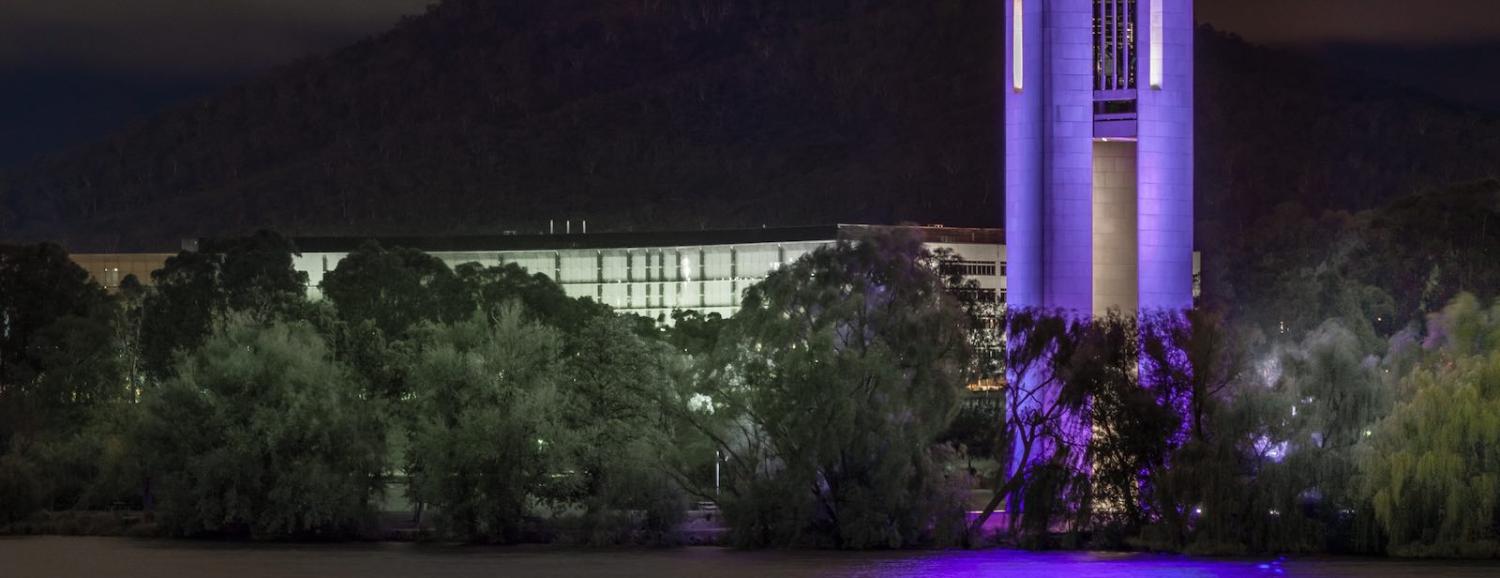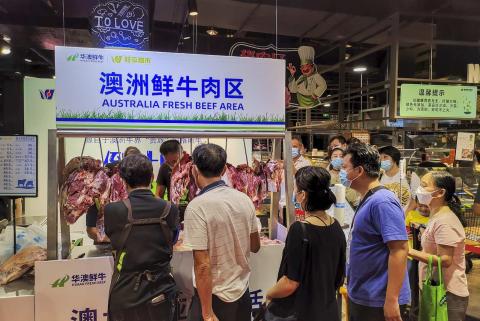Sam Roggeveen wrote recently on the need for the government to be more forthcoming about its security assessments on China, specifically, allegations of influence and interference activities conducted within Australia. The trigger was Andrew Robb’s interview for the ABC, in which the ex-cabinet minister lashed out at Malcolm Turnbull, his administration’s China policy, and the “toxic” state of Australia-China relations.
Robb may be the most senior former member of the government to openly criticise its stance on China. But he is hardly alone in denying that Beijing harbours less than benign intentions towards Australia.
Roggeveen is right to flag that the government needs to “take the public with them” in the struggle against foreign influence. He’s also correct that politicians bear primary responsibility for publicly articulating the government’s case on China, not the security agencies themselves, which Robb also singled out for criticism.
Still, both politicians and the agencies could be doing more to prep the public on the downsides of embracing China’s economic value proposition, especially in terms of influence and interference undertaken, known or unknowingly, on behalf of the Chinese Communist Party (CCP). More guidance is needed for navigating the many grey areas here, while the new counter-interference legislation is still in its infancy. The national security community has an out-of-the-shadows role to play here.
Unlike Roggeveen, though, I’m not convinced that increased intelligence transparency and disclosure is really the crux of the issue. That Robb, who participated in the National Security Committee for three years as a cabinet minister, rejects the notion that China poses a “security threat” and sees only the pursuit of “soft power”, suggests the problem goes deeper. Robb’s comments are worth reading in full, as a study in self-justification and denial. But they are hardly unique.
It’s important to highlight two points:
First, there is nothing particularly secret about the CCP’s pursuit of foreign influence, including within Australia. A significant amount of this effort occurs in plain view, within legal bounds. It is more often obscured by the language barrier than the veil of secrecy.
That’s not to say there isn’t a substantial clandestine element, some of which Australia’s intelligence agencies will no doubt be privy to. China is not the only authoritarian country under single party rule, but it is by far the most powerful and successful, with an influence toolkit to match.
Under “Chairman of Everything” Xi Jinping, the Party has stepped up the promotion of its interests overseas, including a heightened emphasis on cultivating influence through the United Front Work Department. That heightened interest has been felt, often uncomfortably, within Chinese diaspora communities, including Australia’s. But the Party’s pursuit of influence overseas runs more broadly into academia, business and politics, including through the open cultivation of links with prominent non-Chinese Australians, such as Robb, who have held high office.
Second, it’s worth underlining that the risks posed by China’s influence activities spread beyond the traditional purview of national security – distinct from espionage, which concerns the gathering of secret information, and is covered by century-old laws. Hence the government’s efforts to introduce new legislation that captures foreign influence activity, straddling the divide between legal and illicit activity. Indeed, the legal requirement to register influence activities conducted on behalf of foreign governments is expressly designed to promote transparency.
When Robb asserts that he didn’t learn much more from intelligence material “than I was reading in the papers”, let’s not forget that a dedicated group of Australian journalists, including Nick McKenzie, Chris Uhlman, Kelsey Munro, Lisa Murray, and Chris Zappone have worked hard to bring visibility to the issues around foreign interference. John Garnaut, former China correspondent for what was then Fairfax, went into government and played a major role in shaping the Turnbull administration’s “pushback” against foreign interference, including the new transparency register.
Moreover, a cursory search of recent English language “op-eds” emanating out of China reveals the regularity with which hostile broadsides are levelled in Australia’s direction. Such sentiments may well be confected, as part of a Party-directed influence campaign, in order to pressure Australia not to “upset” Chinese feelings. The question is not so much whether Beijing’s behaviour is blunt or rude, but whether its intentions are benign or malign.
According to ASPI’s Alex Joske, who has done ground-breaking research on the sticky interface between China’s military and academia:
The core of any response to undue foreign influence should be to shine sunlight on unacceptable activities, disrupt the mechanisms of foreign interference, and engage with communities most affected by it.
The media, think tanks, and academia all have an important function to play in bringing greater transparency to the debate around foreign influence and political interference. They may be more constrained by resources than government but are less inhibited by diplomatic decorum or secrecy. One of the recommendations of the 2017 Independent Intelligence Review was to create a National Intelligence Community Innovation Hub to facilitate ways in which government, industry and academia could come together “to address capability needs and solutions and create new linkages”. This should be revisited in a China context.
Robb may be the most senior former member of the government to openly criticise its stance on China. But he is hardly alone in denying that Beijing harbours less than benign intentions towards Australia. There is a reticence about publicly entertaining that possibility that cuts across a large section of federal and state politics, business, and academic leadership. Many remain in denial despite a body of unclassified evidence staring them in the face.
Such has been their wholesale embrace of China, personally and collectively, that they appear either unable or unwilling to change their views about its ruling Party. For fear of upsetting the applecart.

